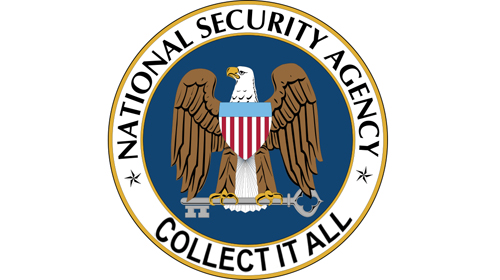
This post was first published on MSNBC.com.
In the wake of recent news that the NSA is spying on Americans, I have been particularly struck by the argument that "if you've got nothing to hide, you've got nothing to fear."
At first blush, this argument might seem sound – after all, if the government is merely conducting anti-terrorism surveillance, non-terrorists shouldn't be affected, right? But if you look more closely, you'll see this idea is full of holes.
The "nothing to hide" argument mistakenly suggests that privacy is something only criminals desire. In fact, we choose to do many things in private – sing in the shower, make love, confide in family and friends – even though they are not wrong or illegal. Who would not be embarrassed if all of their most intimate details were exposed? Fences and curtains are ways to ensure a measure of privacy, not indicators of criminal behavior. Privacy is a fundamental part of a dignified life.
The "nothing to hide" argument also has things backwards when it suggests that we are all worthy of suspicion until proven otherwise. Our system of justice treats us all as innocent until proven guilty. That applies in everyday life – when the government wants to spy on our daily activities and private conversations – as much as it applies in court. The state bears the burden of showing there is a good reason for suspicion, not the other way around. The refrain "nothing to hide" should not be a license for sweeping government surveillance.
Even if you think you have nothing to hide, you may indeed have something to fear. You might fear for yourself. As Kafka so chillingly illustrates in "The Trial," the prospect of unwarranted government pursuit is terrifying. Or you might fear for our society. Living under the constant gaze of government surveillance can produce long-lasting social harm: if citizens are just a little more fearful, a little less likely to freely associate, a little less likely to dissent – the aggregate chilling effect can close what was once an open society.
Government surveillance can also have a direct harm on others – think of human rights workers or journalists who must work with people who fear government scrutiny, not because of wrongdoing but for political reasons. Imagine a liberal group arguing that in the wake of the recent IRS scandal, it has nothing to fear because the IRS is interested only in conservative groups. This argument would be myopic, missing the wider risks of government overreaching. (Need proof? The IRS has now admitted that it scrutinized liberal groups, too.)
Perhaps you remain unconvinced. You are sure that you have nothing to hide and you never will. You think my concerns about chilled speech and democratic accountability are overblown, and you think privacy concerns are exaggerated and unlikely to affect you or our society in any case.
But – and this is the biggest hole in the "nothing to hide, nothing to fear" argument – how can you know for sure?
In fact, you have no idea if you have something to fear or not, because you do not know what the government does with the data it collects. If the government keeps secret what it is collecting about you or why, you cannot correct potential errors. And if you know anything about our justice system, you know that errors are common. Transparency is partly about making sure the government's actions – its outputs – can be evaluated; but transparency is also about making sure the government's information – its inputs – is accurate.
When the government operates in secret, it is hard to know anything with confidence. There is, however, one thing you can say with 100% confidence: we need to know more.
We need to know more about what information the government is collecting about millions of innocent Americans. We need to know more about the secret legal interpretations that the government is relying on to monitor our communications. And we need to know more about what the government does with the trillions of bits of electronic data it is amassing in its files. We need these answers because, even if we have nothing to hide, that does not mean we want to live in a society where nothing is private.
Learn more about the NSA and other civil liberty issues: Sign up for breaking news alerts, follow us on Twitter, and like us on Facebook.
Stay informed
Sign up to be the first to hear about how to take action.
By completing this form, I agree to receive occasional emails per the terms of the ACLU's privacy statement.
By completing this form, I agree to receive occasional emails per the terms of the ACLU's privacy statement.


